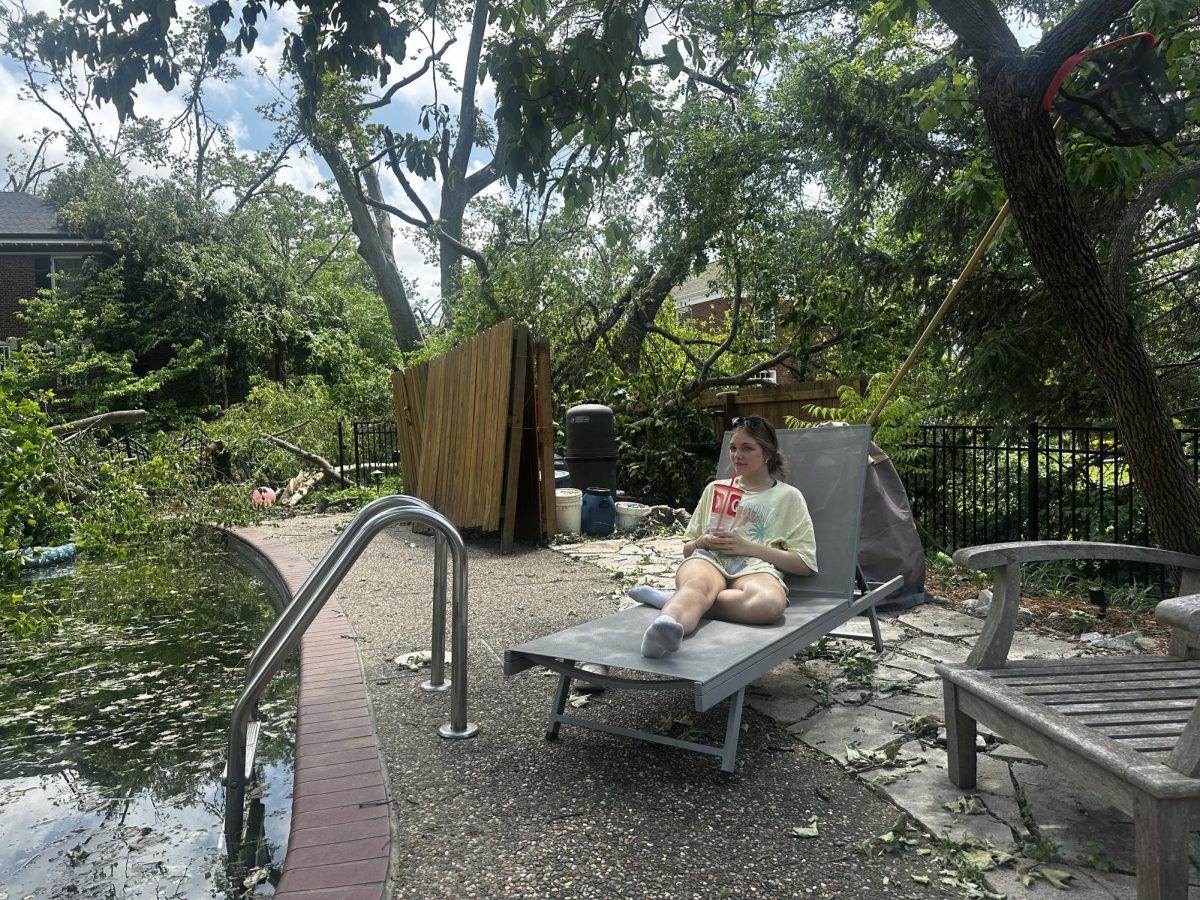Homework. It is generally accepted that it leads to good grades and better understanding of a topic, but it is important to realize that there is such a thing as too much homework.

At WHHS, results from an anonymous survey conducted by The Chatterbox of approximately 150 students showed that they spend an average of three hours on homework per night.
Ninth and tenth grade counselor Renita Brooks believes that the two to four hour workload she sees with her students is not helping them be successful.
“I do think [homework] prevents [students] from being well-rounded and engaging in things that make them happy,” Brooks said. “There is an overall negative impact on their mental health.”
Sources Of Strength (SOS) adviser and math teacher Jennifer Fay agrees that students’ homework load paired with their other commitments can affect their mental health and lead to academic dishonesty.
“The impact on a lot of students is a lot of stress, comparison [and] a lot of kids turning to cheating,” Fay said. “If it was less of a load, I think it is less likely that you are going to see the kind of copying and cheating that goes on.”
This is heightened at a college preparatory high school like WHHS, where there is constant pressure on students to not only maintain a high GPA but also to be involved in extracurriculars, making academic dishonesty appeal to students. Many teachers fail to realize how much time extracurriculars and clubs really take up when assigning work.

With just over 90 clubs and about four students in charge of each, that’s about one in five high schoolers dedicating three hours each week, on average, to club management and activities, according to a survey of 10 club leaders conducted by The Chatterbox.
“During my junior and sophomore years, I rarely got more than seven hours of sleep per night trying to balance homework, leadership activities and volunteering,” Daasi Afanuh, ’25, who is currently a part of the leadership for Green Club, said. “If there was more time in a day, I would be able to do more extracurriculars, but with the workload, it’s just not possible.”
It is also important to consider the extra time certain clubs and teams dedicate to yearly competitions. The robotics team called “The Nuts,” Academic Quiz Team, Poetry Slam Team, Future Business Leaders of America (FBLA), Health Occupation Students of America (HOSA) and many others spend hours preparing for and competing in these events.
When it comes to the nearly 85 sports teams, each one taking up close to 10 hours of students’ time a week during the season—plus the off-season “optional” practices—time left over for self-improvement, familial interaction and hobbies decreases even more.
And lastly, it is important to consider the time jobs take up for students who work. William Demeter, ’25, currently works at Beck’s Hardware from 2:30-5 p.m. three days a week and all day on Saturdays.
“Usually, I have a lot of sleepless nights because I will be home at like 6:15 p.m., and go to the gym right after,” Demeter said. “I will get home at 8-9 p.m., so then I will start homework… may or may not go to sleep that night.”
Joey Bicknell, ’26, works at a restaurant six hours a week, which, like the jobs a majority of WHHS students choose, is a less significant commitment.
“I work in the kitchen and take people’s orders,” Bicknell said. “[To manage my time,] I do school work during the week and do work on the weekends.”
Students are facing pressures from peers, parents and even themselves to be well-rounded, commit to clubs and strive for leadership, so there needs to be a more realistic allocation of a student’s time to things other than homework.
The student handbook states that “at least 10 to 15 hours per week of outside study is expected of students,” which translates to about an hour and a half to two hours of work per night, showing a clear discrepancy with our survey results.
Our data reveals that the amount of homework teachers are assigning does not resonate with the expectations listed in the student handbook.
One of the main causes of this discrepancy could be the lack of department-specific guidelines or restrictions on the type and amount of homework teachers are allowed to assign.
From personal experiences and interactions with others, it is clear that the assignments that take up the most time are those that cover untaught topics.
“Lots of teachers assign homework without teaching the topic enough, leading to cheating, not knowing the topic and more stress,” one student wrote in their response to the anonymous survey about homework previously mentioned.
There need to be guidelines in place to ensure that homework is purposeful and reasonable, which may look different for different departments.
As a math teacher, Fay’s example of a reasonable assignment would be four to five practice problems that students should not spend more than 20 minutes on a day.
However, this is not stated in any department guidelines, making time spent on homework a variable that changes according to what teacher students have.
There is a lack of discussion between departments on how their homework assignments are structured and how much time students should spend on them. This has resulted in teachers being unaware of a student’s cumulative workload.
“When you hear of an assignment that’s fairly lengthy with a very short turnaround, that’s hard because students have a lot of extracurricular activities and involvement,” Fay said.
When students complain about the homework their other teachers assign, teachers do not feel knowledgeable enough to start the cross-departmental discussion on addressing seemingly problematic assignments.
Kyle Scudder, who teaches AP Research, several English classes and Time To Speak (TTS), helps his students balance their time by assigning purposeful homework. He also pushes his students to maintain their mental health.
However, his attempts, like those of other mindful teachers, can only be effective in reducing students’ homework loads if other teachers assign realistic and purposeful assignments too.
It is paramount that the discussion on how purposeful and doable assignments look for different departments is instigated so that all students—no matter what class they are in or what teacher they have—receive a healthy amount of homework. Only then will every WHHS student have the ability to strive to rise to the highest.
This story was originally published on The Chatterbox on October 23, 2024.




































